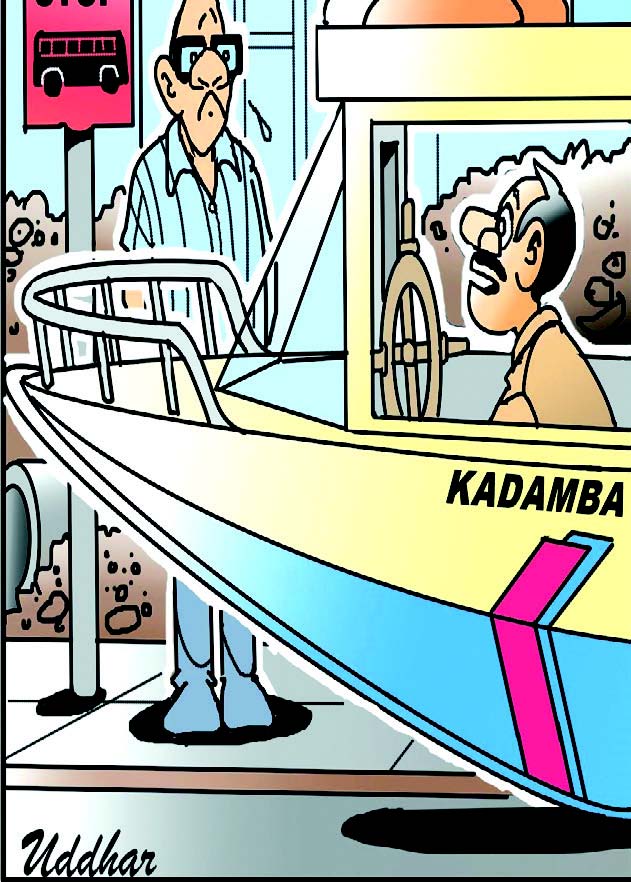
Plastino D’Costa
With no water at the resident’s disposal, wonder what becomes of the value of these dwellings in these posh localities. What’s the point having gold plated bathroom fittings if they are going to remain dry?
Once upon a time, Bengaluru was identified as the air-conditioned city of India; it then rapidly turned into the Silicon Valley of India, with the mushrooming of IT companies. The city was instrumental in making India the power house of information technology, earning huge sums of foreign exchange for the country. But somewhere during the transformation Bengaluru seems to have lost the big picture, it literally cheated the local population of the city they love and call it their home. If you see the satellite images and the destruction of green cover of the past decades, it is clear that planning of the city took a back seat and everyone at the helm were more interested in converting the air-conditioned city into a hot furnace.
Climate is not the only casualty here, Bengaluru now has serious water shortage that has come to light in recent months. The situation has become dire, that a posh gated community has asked its residents to use paper plates and wet wipes. With no water at the resident’s disposal, wonder what becomes of the value of these dwellings in these posh localities. What’s the point having gold plated bathroom fittings if they are going to remain dry? While some cash rich societies and builders worked around this problem by providing water through tankers, the government was forced to intervene, and take over the water tankers, so as to regulate and make sure these localities don’t corner the water with the power of their financial muscle and only get their problems temporarily fixed.
Bengaluru think tanks after remaining silent over the years, have woken up and are now requesting the IT industry to allow their employees to work from home, so that most can leave the city and work from their home-town, thereby reducing the water demand. But this should have been planned by the government regulators a long time ago, no? So, what is planning really? Every industry comes with its advantages and disadvantages. These industries might look green on paper, but are always going to put an upward pressure on the natural finite resources the place has to offer. The authorities and the regulators are supposed to regulate these resources, but when regulators start giving approvals left right and centre with scant regard to environment, the place eventually breaks down taking the entire population down with it.
It is said that Narayana Murthy by starting Infosys really started the back-office IT revolution in the country especially in Bengaluru, others followed and a trickle became a tide. Now, while allocating land resources the regulators should have realized how many people can the city sustain? You cannot blame Infosys for asking land, they were a growing company and any new land parcel was always going to be a welcome addition for them, but the onus was on the regulators who had to work out the sustainability of the city and how much growth it can manage.
Imagine the plight of the original Bangloreans, who might have not earned a rupee from the IT boom and are now made to suffer, because an industry arrived in their backyard and sucked them dry. The new circumstances will now demand Bangloreans to forcibly ration their water consumption, similar to the people of Mumbai thereby sinking their standard of living. Bangloreans are mostly decent, intelligent, smart people, and yet they were unable to foresee the horror show that is playing out in their city.
Comparatively Goa and Goans has done a better job in objecting huge projects, our collective conscience have generally seen the evil design of projects that might be detrimental to the local people and to the state. Unfortunately we have some chinks in the armor, because a certain section of our population is still unable to come out of their slave mentality and will prefer to attend politician’s meetings for that free lunch or a Rupee 2000 bribe, never mind if they get baked in the hot sun, the government knows exactly how to exploit that weakness and bull doze their agenda.
The way the IT industry over-crowding is fast turning from boon to bane to the city of Bengaluru, the tourism industry in Goa has the potential to create havoc to the already crowded space of Goa. The upward pressure on Goa’s resources is immense and the fact that 5 star hotels use water tankers on a regular basis only goes to show that approvals are being given without taking into consideration if these hotels deserve to exist in the first place. How many hotels are willing to educate their guests that they will need to converse water during their stay in Goa.
Practically None! Rates of hotels almost always include 24 hours free water. A guest for all you know might sit for hours under the shower, while the hotel makes arrangements to replenish their water stock through the tanker service. So what if the hotel is willing to foot the water bill, water wasted lavishly by hotel guests deprives water to a Goan somewhere in the hinterland.
Time has come to take stock of the limited resources Goa possesses. It needs to understand that there has to be a limit on the amount of visitors it can accommodate at any given time. Once we arrive on the exact figure, hotel licenses need to give accordingly so that we don’t overshoot the inhabitants target. One can understand a financially stressed government is always going to be under pressure to increase the number of tourists so that they can amass more taxes. But by not regulating tourists the government is taking a bigger risk of breaking the tourism industry once and for all and beyond repair. Goans like Bangloreans will be part of the collateral damage once the industry leaders wind up for good and go to other greener and resource rich pastures. Bengaluru has given the country a warning signal on how a so called modern city can fast deteriorate if it is abused without proper planning. Goa better pull up your socks, if we want to avoid the next horror show.
(The author is a Business Consultant)
